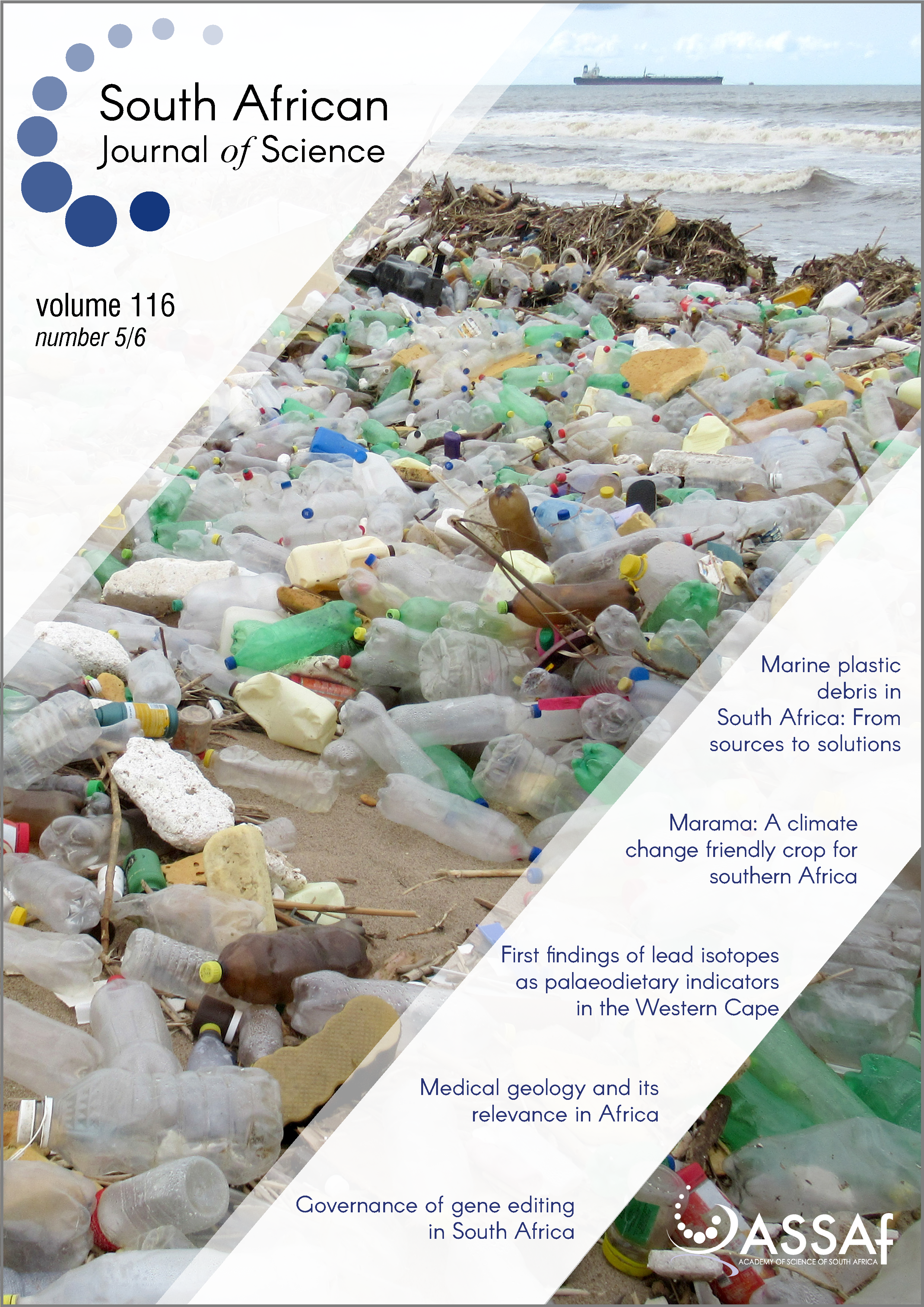Impacts of marine plastic on ecosystem services and economy: State of South African research
DOI:
https://doi.org/10.17159/sajs.2020/7695Keywords:
marine plastic debris, plastic pollution, economic impactsAbstract
In addition to its direct impacts on marine ecology and biota, marine plastic debris can affect the delivery of ecosystem services, with resulting impacts on human well-being, society and the economy. It is important to quantify these impacts in economic terms, so as to be able to provide evidence-based support for an appropriate policy response. We review the South African literature on the impacts of marine plastic debris on ecosystem services and on the economy, in order to identify relevant knowledge gaps. The gaps are found to be significant. Some research has been conducted in terms of impacts relating to recreation, aesthetics and tourism and the costs of beach and harbour clean-ups. However, there is a significant lack of research regarding impacts on ecosystem services relating to fisheries and aquaculture, heritage, habitat provision, biodiversity, and nutrient cycles. There is also a significant lack of research regarding direct economic impacts on the transport/shipping and fisheries industries, indirect economic impacts (such as costs associated with health-related impacts), and non-market costs (e.g. impacts on scenic, cultural and spiritual values). More research is needed in South Africa to address these gaps, in order to inform policy aimed at addressing plastic waste and marine plastic debris.
Significance:
- This review highlights the knowledge gaps in terms of the impacts of marine plastics on ecosystem services and on the economy in South Africa, which are important to understand in order to be able to direct funding for future research in this domain. Without better knowledge of the economic impacts of marine plastic debris, it is difficult to assess the costs of inaction, and therefore to inform an appropriate policy response for tackling the problem of marine plastic debris.
Published
Issue
Section
License

All articles are published under a Creative Commons Attribution 4.0 International Licence
Copyright is retained by the authors. Readers are welcome to reproduce, share and adapt the content without permission provided the source is attributed.
Disclaimer: The publisher and editors accept no responsibility for statements made by the authors
How to Cite
- Abstract 3223
- PDF 2024
- EPUB 271
- XML 420













.png)